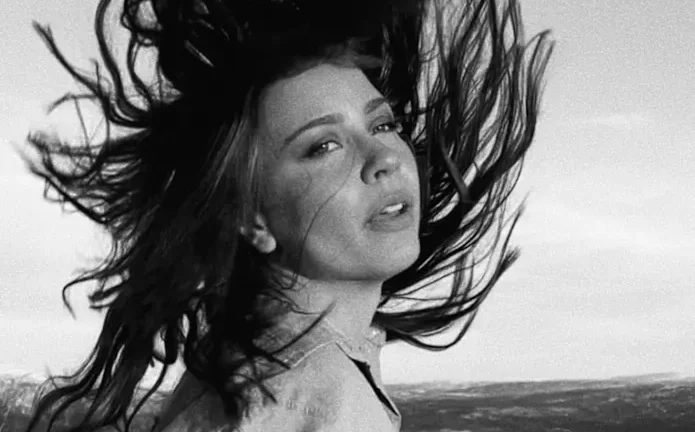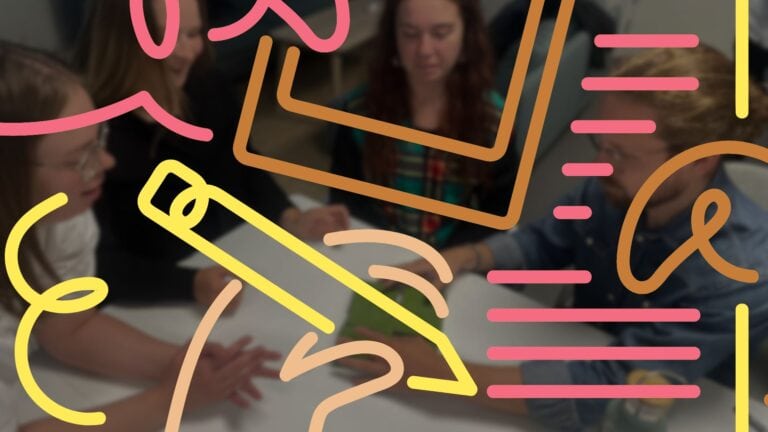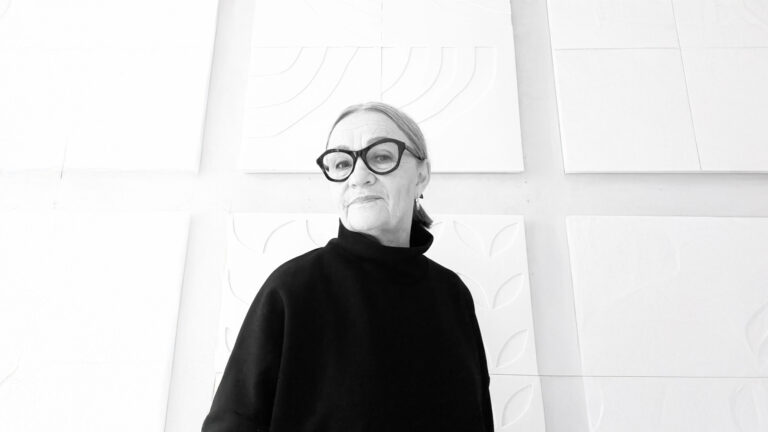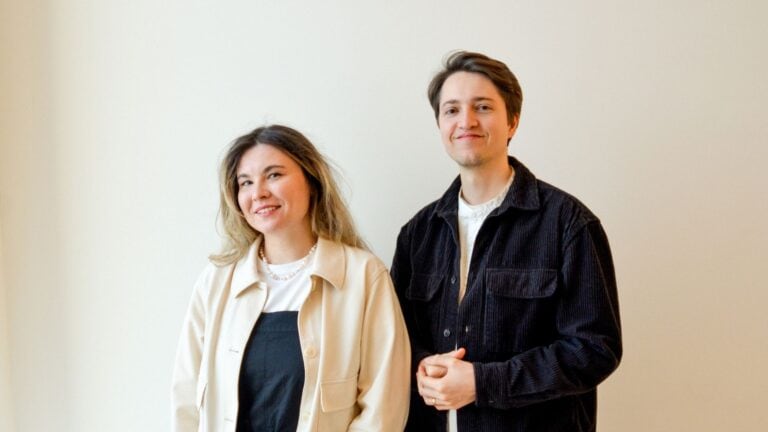She has always been interested in people, society and design. When it came to combining these interests, the first stop on her journey was architecture and studies at the Umeå School of Architecture. She has always had a dream of starting her own business and when three years after finishing her studies, an opportunity for local work with the start-up company Harvest came up, she jumped at the chance. Meet Emelie El-Habta, the architect and entrepreneur who started the architecture & events company COLLARK
What is COLLARK?
COLLARK is a start-up architectural and event company that consists and is run by me, Emelie El-Habta, but where partners are an equally important part. Great emphasis is placed on collaboration and co-creation, with others in the industry but also with citizens and other stakeholders. There is a strong belief in the great impact of small initiatives on our local environment and present, but also on the world at large and its future. Everyone involved in the city and in architecture has expertise in how we can work together to shape a more inclusive society.
"There is great confidence in the great impact of small initiatives on our local environment and present, but also on the world at large and its future. "
Who is Emelie El-Habta?
My name is Emelie El-Habta and I am from Umeå. I've always been interested in people, society and design and wanted to work with something that had all these elements, so I chose architecture. I graduated in architecture in 2017 at the Umeå School of Architecture, UMA, and have been working at UMA ever since. In early 2020, I started my own business under the name COLLARK.
How did you come to start COLLARK?
I've always wanted to start my own business but never thought it would be so early in my career. After stumbling across Harvest's project during a period when I felt a great lack of gesture, I really went for their project idea of food cubs and hyperlocal food production. I emailed them my CV and portfolio and when they then wanted to work with me as a consultant, it was just a matter of getting started and setting up my own business so that we could work together!
The name of the company felt important and I wanted it to somehow express collaboration. The best work and the best products are created in collaboration between people with different experiences and expertise. Co-creation is also one of the most fun things there is, I think!
COLLARK is a Svengali compound of the words collaboration [cooperation] and architecture.
How has studying at UMA affected the company?
At UMA, there is a strong focus on creating projects with direct links to real people, places and societal challenges, and as a student you also have a lot of freedom to shape your projects based on issues that you are involved in and find interesting. COLLARK is in many ways a continuation of what I did during my studies and with the working methods I first tried out there, for example with co-creation.
In my fourth year of the architecture programme, I studied food production sites and how they are very invisible in our everyday lives, even though food is such a central part of our lives. I found Harvest's project, which was my first with COLLARK, so incredibly interesting precisely because they placed food production right under our noses, by the bike lane at NUS, and the delivery of food in a place where many people pass by, at the Umeå East train station. The delivery takes place in the food cube that I designed, which will also house various events about food production, such as workshops and exhibitions, and serve as a workplace for Harvest.
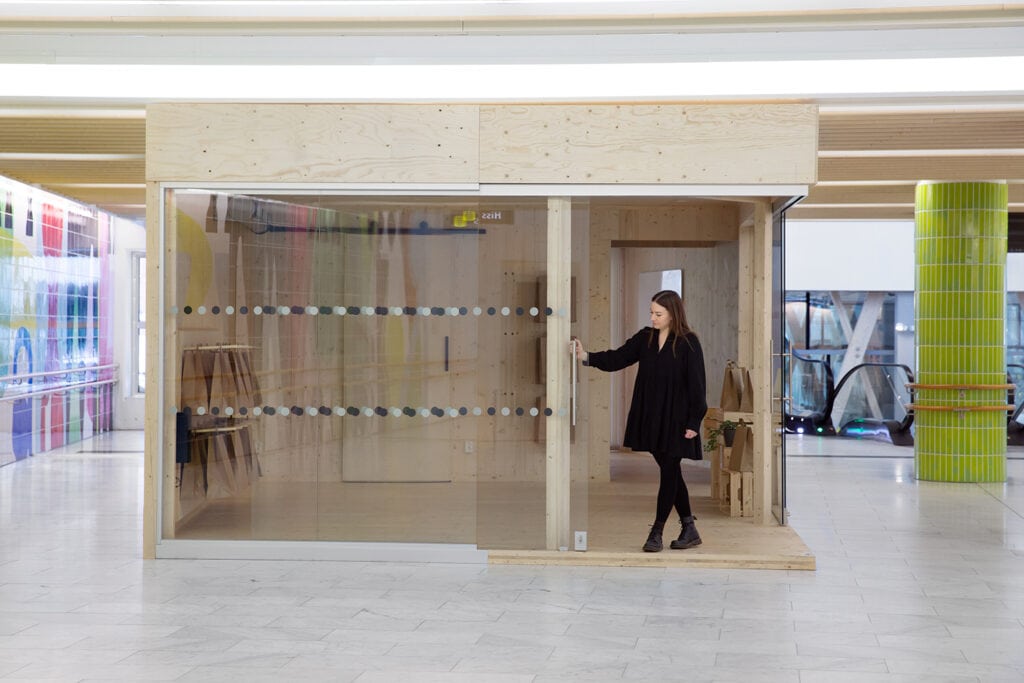
During the creative process, all partners were involved; Harvest, INAB and Martinsons, all bringing their expertise to the table. With Harvest, I was able to do some fun stuff too, like taping up a real scale model on site in Umeå East to test how the rooms would feel.
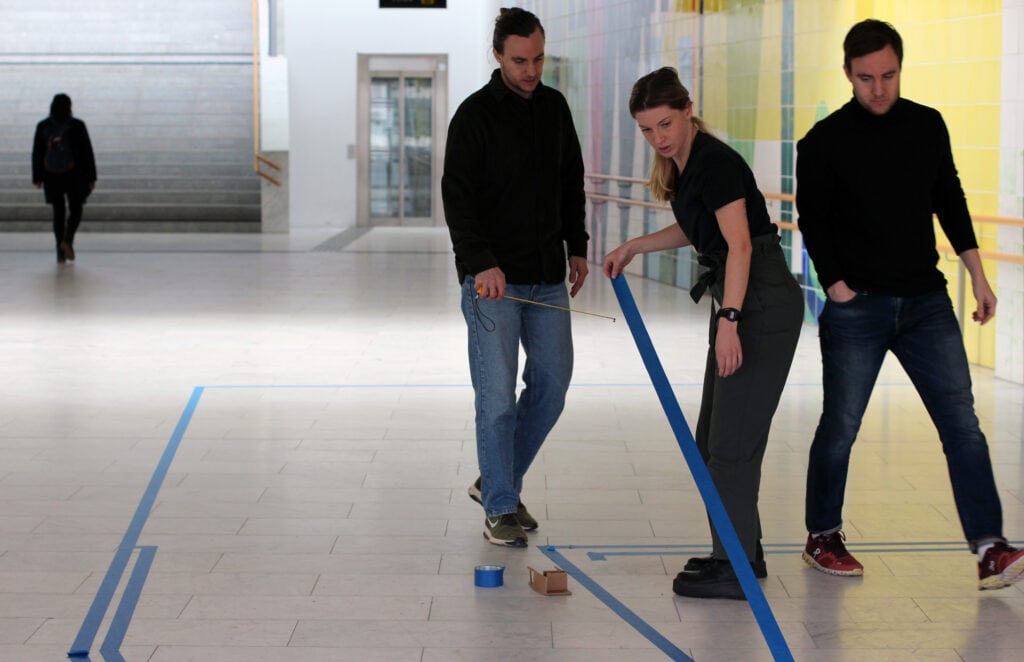
What is the most fun part of running your own business?
The best part is that I get the chance to work on issues and projects that I am passionate about! It's also great to be active in all parts of the process, from the first customer contact to the finished product.
In autumn 2020, you participated in the eXpress programme. What was most valuable about it?
I applied to the programme to help me test my idea. I had an idea of what I wanted my business to be but wanted guidance from experts in entrepreneurship to create something that could grow.
The best thing about eXpress programme is to get help at the beginning, when everything is new and difficult, to ask the right questions about the original business idea, test it and get help to develop it into a sustainable business - in all its aspects. The structure of workshops on different topics that are important at the start combined with individual help with the chance to ask more concrete questions is incredibly valuable! The programme includes a business coach and it's so good to have someone to ask about big and small things because it can sometimes feel a bit lonely to start your own business when everything depends on you as a self-employed person. Just picking up the phone and asking a question, or sending off an email about something you're stuck on is great!
What's happening at COLLARK right now?
Right now, my old classmate from UMA and fellow architect Hanna Ivansson and I are developing a project we call Kultursläppet. With Kultursläppet, we want to open up Umeå's empty spaces for various cultural events and hope to fill empty storefronts, warehouses, office buildings with culture when we can meet again in a safe way. So many productions have been dammed up during the pandemic and when the art, corona records, poems, plays and dance productions come out, we need to find new spaces for them to take place in. We believe these spaces already exist and are empty and waiting.


